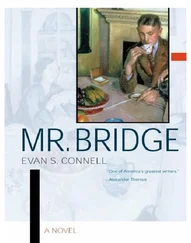Impossible. The man was impervious to every human feeling, even greed. He thought of the East German guard, killed on Glienicker during Brodsky’s aborted escape and how Andreyev had reacted to the news with callous indifference.
Not that von Eyssen’s superiors weren’t equally indifferent. With the summit looming, word had come down from above. Keep the borders quiet. No incidents during the negotiations. None after they were over. None during the expected new round of talks when bold proposals by the Soviet Union would be tossed on the bargaining table for the first time.
Von Eyssen’s jaw clenched as he relived the criticism that had been heaped on him by his superiors—and worse, by the likes of Aleksei Andreyev. What should he have done, allow some Soviet swine to escape and peddle his espionage wares to the West? The Soviets this, the Soviets that—and to hell with the Germans. Potsdam wasn’t even in his normal jurisdiction!
How carefully, how cautiously, he had nurtured his career. No sacrifice had been too great, not even the humiliation of being patronized by inferiors. Soviet barbarians who raped, not just our women, but our country! That the Soviet Motherland had plundered twenty billion dollars’ worth of German industry by calling it “reparations” never ceased to enrage him.
But there would be a day of reckoning. A day when Germany’s leaders, East and West, were replaced by men of vision and courage, he brooded. He would be ready for that day, his record spotless, his career intact.
Von Eyssen rose, walked to a floor-length mirror, and stood at rigid attention. The reflection that stared back was, as always, reassuring. White-blond hair and azure-blue eyes. Tall and broad-shouldered. Neat green uniform adorned with medals. A true Aryan…
The man of the future.
Colonel Emil von Eyssen clicked his heels, did a smart about-face, and cleansed of fear and anger, returned to his desk.
Where a pile of photographs rested placidly. Von Eyssen forced himself to leaf through them again. A face loomed with each name, like a roll call. This one is in no position to betray me. That one is, but would not dare. This one has no access to classified information. That one used to, but not anymore.
And his brother-in-law?
Damn you, Frieda!
He could hear his sister’s voice as if it were yesterday.
“My husband must have an important position in life, Emil. The kind that allows us to mingle with important people. And besides,” she pouted, “Ernst happens to be very talented. He takes such beautiful photographs.”
And I gave in to her, von Eyssen groaned.
He put through a call to his sergeant, who had just returned from tailing Roeder. “From now on,” von Eyssen told him, “I want my brother-in-law under twenty-four-hour surveillance.”
Everything was in readiness for the high point of the Humboldt University medical conference. The amphitheater was standing-room only—physicians, nurses, medical students, staff members, journalists, even some of the idly curious.
The elderly patient, unconscious on the operating table, lay between a sheet and a hypothermia mattress that had lowered his body temperature to the required coolness. Doctors, nurses, and technicians were stationed around the table. Behind them, in customary white smocks and masks, were four honored guests: Dr. Mikhail Yanin, Dr. Kiril Andreyev, nurse Galina Barkova, and Mrs. Adrienne Brenner.
A technician sat placidly at the controls of a heart-lung machine.
The chief surgeon, an East German of excellent reputation, leaned over the patient. Making an incision from collarbone to diaphragm, he sawed through breastbone, spread open the rib cage to expose a gleaming fibrous membrane laced with blood vessels—the pericardial sac.
As if on cue, at that precise moment Dr. Kurt Brenner entered the operating room from a side door. He walked to the table, held out a gloved hand for an instrument, and with a quick deft movement in what seemed a split second, cut open the pericardial sac to reveal the patient’s heart. There were murmurs of approval from many in the audience, a scattered clapping of hands. A woman in a green operating smock high in the amphitheater murmured, “Bravo, Maestro.”
With quiet authority, Dr. Kurt Brenner began issuing orders in German that would stop the heart and delegate its indispensable functions to the heart-lung machine.
Brenner glanced at a balloon-like device hanging above the machine—and frowned.
Kiril Andreyev wondered how many other doctors had noticed, let alone figured out why Dr. Brenner was forced to work with a bubble oxygenator rather than the more efficient disc version he probably was accustomed to.
But there was something else. If it troubled Kiril, it had to bother the hell out of Dr. Brenner. The technician’s responses to Brenner’s orders were a touch too lethargic.
Still, Kiril reassured himself, the machine had taken over the patient’s breathing. Everything seemed to be normal.
As the operation progressed, the only sounds in the room were those of the operating team, Brenner’s occasional commands, the gentle whir of an electric motor as the patient’s blood and oxygen were rerouted, and the repetitive blips of an electro-cardiac monitoring machine.
Adrienne, struck by the grace and economy of her husband’s movements, glanced up at the mesmerized students—and was transported back to the balcony of another operating theater the first time she had watched Kurt assume responsibility for someone’s life even as he was in full command of his own. She wished his parents could have been here, especially his father. Max would have been bursting with pride.
The hypothermia mattress signaled the gradual warming of the patient’s body. He was injected with a drug to neutralize the effects of the anti-coagulant in his bloodstream. An electric shock jolted the patient’s heart. The lifeline between human heart and heart-lung machine was about to be severed.
There seemed to be a collective holding of breath as everyone waited for normal contractions to begin. For the patient’s heart to start beating on its own.
Nothing happened.
The eyes of every doctor in the room leaped to the technician in front of the control panel.
The man looked stunned—unable to react to Brenner’s urgent commands.
Someone shouldered the technician aside. One hand whipped off dark glasses. The other shot out for the backup oxygenator, then reached for a bottle of fresh fluid to wash the lines of tubing free of blood and avoid fatal clots to the brain. Kiril Andreyev went to work, pausing only once—to exchange a glance, like a firm handshake, with Dr. Kurt Brenner.
The famous American surgeon could do nothing but massage the patient’s heart… and wait.
In less than five minutes the waiting was over, the malfunctioning heart-lung machine once again ready to take the place of the patient’s heart.
But too many valuable minutes had been lost. The operating team bent over the form on the table, going through motions everyone knew were as futile as they were routine. The patient was dead.
The amphitheater began to empty as one visiting doctor after another silently left the room. Dr. Kurt Brenner stood immobile at an operating table ringed with solemn faces, the operating team’s masks now lowered.
Galya made her way toward Kiril to console him on his valiant but unsuccessful race with the clock. He had retrieved his dark glasses and was about to put them on again.
But not before she saw that there was no redness, no trace of an infection in his left eye.
There never had been !
Her glance moved back and forth between two faces in the room—Kiril’s and Dr. Yanin’s—as she recalled Dr. Yanin’s little joke that morning at breakfast.
Читать дальше












